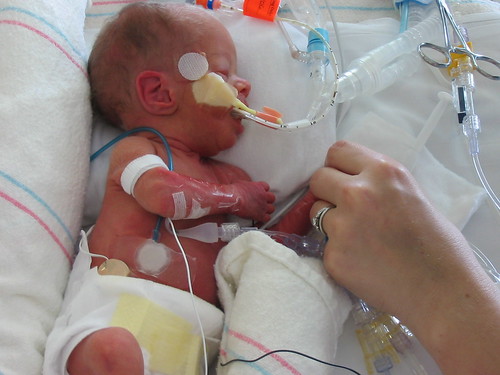You probably know someone — or are someone — who says ‘____ drug just doesn’t work for me.’ or, ‘____ drug really messes me up’. Individual response to drug dosage is a pervasive confounding issue in health care. We know some of the pieces of the puzzle; age, metabolism, activity, and overall health are all factors contributing to individual drug response, but what if your guts have something to do with it, too? Bacteria present in the human gut make up what is called the ‘Human microbiome’, and it is the newest frontier in health research. Continue reading “Individual Response to Drugs May Be Influenced by Your Gut Microbes”
Could the Amish have it Right?

Background: Can leading a simple traditional life correlate to health in non intuitive ways such as acting as a buffer against the development of asthma? Recent studies have shown that asthma is less prominent when microbial diversity is high (Genuneit, 2012); this trend has been observed in children involved in farming (Mutius,2010). Genuneit demonstrate that children who are exposed to farming have a 25% decreased chance of experiencing asthma (Genuneit, 2012). Logically it is sensible that the diversity of microbes would be higher in children exposed to farming, with all the dirt, hay and animals that comes with it, than children who are not exposed to that environment and live in more consistent sanitary lifestyle. In other words the diversity of a bacterial community across subjects (farm children vs. non-farm children) is much higher in children exposed to farming than those who were not. But how is such a phenomenon achieved? Continue reading “Could the Amish have it Right?”
A Look at Resolving Milk Allergies Through the Gut

Background
Cow’s Milk Allergies are the most common food allergy in children, affecting 2-3% of these individuals in developed countries (Høst 2002). In most cases 45-50% of those affected by milk allergies will naturally resolve their allergies by their 1st year of age (Høst 2002). Milk allergies are associated with hives wheezing and or coughing immediately after consumption and symptoms such as cramps, itching, and diarrhea which take time to develop. A true milk allergy differs from lactose intolerance in that a milk allergy will involve actual immune system response whereas intolerance does not. The reasoning for allergy resolution is quite unclear but Bunyavanich et al. uses her study to connect allergy resolution to microbiome composition. To better understand this work,we can look at allergic responses and digestive issues as a response or the inability of the living microorganisms in the human body’s inability to process these allergens (Round & Mazmanian 2009). Continue reading “A Look at Resolving Milk Allergies Through the Gut”
Hitting Malaria where it hurts: how to eradicate the Malaria carrying mosquito.

Why should you care?
When talking about the leading causes of mortality (discounting war and starvation) a few big causes pop into most people’s minds: heart disease, cancer, and HIV-AIDS. In the westernized world, one that doesn’t come to mind is malaria, largely due to our advanced medical care and simply not having a large population of the malaria carrying mosquitoes in the genus Anopheles. However, malaria still infects roughly 225 million people per year and causes roughly 1 million deaths, the majority of which are in Africa (Murray et. al, 2012). A major field of medical research is devising methods of intercepting insect-borne diseases such as malaria, yellow fever, and the insidious Zika virus before human infection. That is, somehow preventing the mosquitoes from spreading the disease or even being infected in the first place, rather than treating the symptoms of the diseases in humans. One such experimental method is to cause significant mosquito mortality by spreading the bacterium Wolbachia, a parasite that is harmless to humans but lethal to mosquitoes after a blood meal. What would this mean for the rest of the environment and organisms? In an ideal scenario the Wolbachia parasite would target and swiftly execute only Anopheles mosquitoes, which are the ones carrying the malaria causing Plasmodium, while leaving all other types of mosquitoes that help sustain an ecosystem unharmed. There is still a lot of research to be done, but we are finding out some things about this potential biocontrol already. Continue reading “Hitting Malaria where it hurts: how to eradicate the Malaria carrying mosquito.”
Saving babies, the microbiome’s role in defeating necrotizing enterocolitis
(Photo credit flickr user: hudsonthego)
Babies born too soon
Medicine is advancing faster and faster. Babies born at 23 weeks, only 3 weeks past the halfway point of a full term pregnancy, have a 17 % chance of survival, and if they are born just one week later their chances jump to 39% (preemies survival). While there is a greater chance of survival for these babies than ever before, another statistic is also growing, according to the World health organization the number of premature births has increased worldwide. Approximately 15 million babies are be born before 37-week gestation each year, and almost a million of them die as a result. While many of these deaths are tied to lack of medical care in unindustrialized countries where the premature birth rates are extremely high, there are still risk factors for those receiving even the best of care (WHO, 2015). The lungs, brain and digestive tract of premature infants are all underdeveloped, leading to severe and sometimes life long complications; one of these complications is necrotizing enterocolitis. Continue reading “Saving babies, the microbiome’s role in defeating necrotizing enterocolitis”
What happens to your microbiome when you stop eating gluten?
The Gluten-free Diet
Celiac Disease is an autoimmune condition in which the immune system mistakenly attacks and damages the villi of the small intestine when it detects gluten. This damage can cause pain, fatigue, and diarrhea. If left untreated it can lead to complications such as infertility or cancer. Only a small number of people- around one percent of the population- actually suffer from Celiac Disease. A gluten-free diet is used as treatment for both celiac disease and non-celiac gluten sensitivity. Even though it is unknown whether a gluten-free diet is beneficial to people who do not have Celiac Disease, many people have adopted a gluten-free diet to eat healthier or lose weight. The number of people eating gluten-free is rising, with 17% of Americans actively avoid including gluten in their diet (Riffkin 2015). Continue reading “What happens to your microbiome when you stop eating gluten?”
Does your gut control your brain?
When studying mental illness, the brain has long been the focal organ of interest. Psychiatry and neurobiology examine communication from the brain and how its chemical imbalance produces central nervous system (CNS) disorders such as depression and anxiety. However, microbiology presents a new avenue of inquiry that is looking from the opposite direction: how is communication to the brain affecting mental health? This is a provocative question under investigation through recent studies of the microbiota of our gut. Continue reading “Does your gut control your brain?”
Fixing itchy scalps could be as easy as balancing bacterial communities
Background
Microbes are everywhere. They live in our backyards, on our pets, in our homes and even on and inside of us! Microbes are the bacteria, fungi and viruses that exist in a particular environment, including the human body, soil, plants and the kitchen counter (Marchesi & Ravel, 2015). Our first experience with microbes is usually at home, where we are taught to wash our hands to prevent us from getting sick. “You can’t eat without washing,’ your aunt might say, “there are germs all over your hands!’ Your aunt is right. For every human cell in our body, there is a microbe cell to match it (Sender et al., 2016). However not all of these microbes are harmful.
Continue reading “Fixing itchy scalps could be as easy as balancing bacterial communities”

